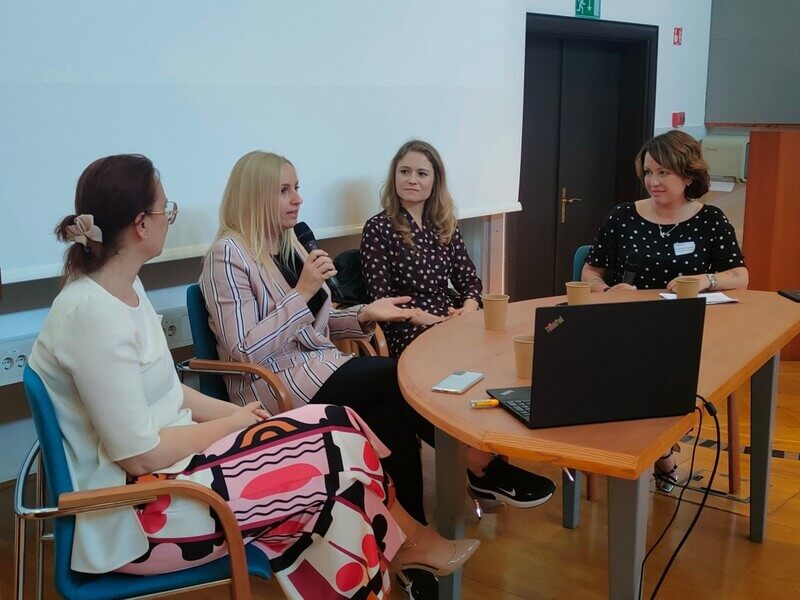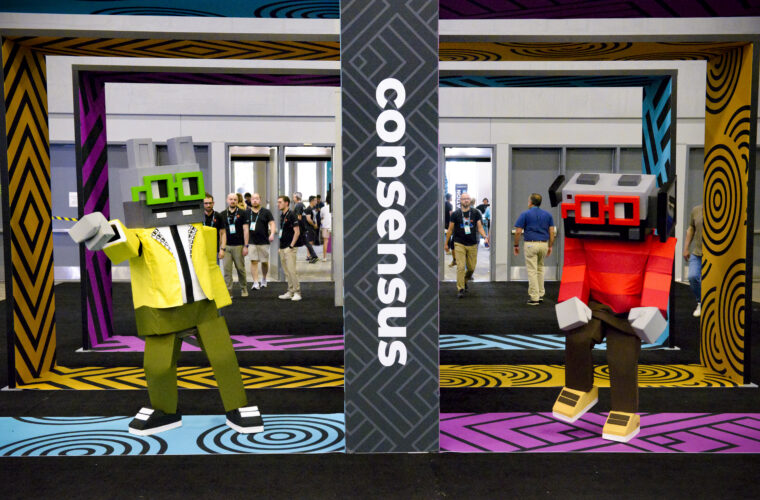Raise your hand if you have never heard of blockchain? So many people listen to references on the subject. Still, they may not know what it is, what the key elements are, and what this set of technologies, linked to cryptocurrencies but with the potential to change many other industries, can do. To understand more, I spoke with Tanja Bivic Plankar, president of Blockchain Alliance Europe (BA), which is active in the Adriatic region.
How did the BA project come about, and what objectives does it pursue?
Blockchain Alliance Europe was founded in 2018 amid the bear market, very similar to the situation we are facing right now. The founders were several Adriatic region companies developing blockchain technology solutions, and the main focus was business assistance among the members. We are still staying true to our primary goal. Still, we also focus on education about blockchain technology and crypto assets and regulation since we believe those are the key elements that will bring us to mass adoption of blockchain technology solutions. We also perceive Blockchain Alliance Europe as an initiative of experts and professionals who set the industry standard.
How does Blockchain Alliance Europe move to connect experts in the field and promote the potential of blockchain in Europe?
We are open to every company that wants to connect and support our goals and wishes to be active in the blockchain ecosystem. We are organizers, co-organizers, and partners of a large spectrum of events; for example, we co-organized a “Women in Digital” conference. For September, we are already planning a pre-ROWT meet-up for the community in the Adriatic region. Our BAE experts are also speakers at many blockchain events. We are connected with many similar initiatives throughout the EU; we also publish articles and promote them through different channels, writing opinion and position papers about essential topics.
Could you tell us what kind of projects BA has done with government authorities?
Blockchain Alliance Europe positions as an initiative of experts, and as such, we see a certain lack of understanding of blockchain (DLT) technology among government officials and decisions makers. We intend to provide professional and trustworthy expertise on essential matters, for example, smart contracts, payments, SSI, Defi, etc. Our members worked on community-initiated ICO guidelines, active in various standardization groups and on the EBSI level. As an initiative, we also participate in public debates about regulation proposals with expert opinions, proposals, etc.
The concept of blockchain is often focused only on cryptocurrencies: what makes it a reliable element for buying and selling digital coins?
Suppose we are talking about individuals and their investments in crypto-assets. In that case, there are several rules that an individual must follow:
- Understand what you are investing in
- Never invest more than you can lose
- Do your research
Individuals are usually driven by FOMO and FUD and are regularly forgetting about the basics I just mentioned.

As for crypto-assets and their reliability: The main characteristic you have to consider when investing is decentralization, trust of the community that is translated into market share, team and their share of tokens, and possibilities for scaling. To assess those characteristics, you have to possess the required knowledge, which is why individuals often fail in investing in crypto-assets because they do not have the time, access, or motivation to learn.
And yes, blockchain technology does not equal bitcoin or crypto-assets. There are many possibilities to use it on different levels, for example, Self Sovereign Identity based on distributed technology, distributed storage, and blockchain network. Those are some building blocks that can translate into many industry verticals, from insurance, e-mobility, and health care to the supply chain.

Blockchain makes it possible to decentralise processes and thus potentially bypass banks and financial institutions: does this mean that banks need to change their approach?
Blockchain networks and crypto-assets make it possible for an individual to be the owner of their funds, to be “their own bank,” in the words of Andreas Antonopoulos. But as it said, with great power comes great responsibility. For some, it is suitable to be their own bank because they have knowledge about the crypto-market and crypto-asset management and keep their funds safe and secure. And for others without the necessary knowledge and skill being “their own bank” is not a sensible option. And there is a new possibility for banks to develop a new set of products for crypto-assets. And yes, the banks must consider the crypto-market (many already have) and rethink how they will participate.
Why is the Ethereum blockchain the most widely used?
Because it offers most of the necessary functionalities to build projects and it has a community that supports it, in other words, it has the trust required. But I would not perceive Ethereum as the most popular blockchain network because every project looks for a network that suits the clients’ needs for the product they are building. Many blockchain projects and products are also becoming technology agnostic, which means they will ultimately adapt to clients’ needs when they are identified.

What is the Internet of Value, and what might change in the medium- and long-term future?
There are many definitions, but IoV enables a relatively fast transfer of value peer-to-peer without intermediaries. In 2009, the first block of Bitcoin was mined, and Satoshi Nakamoto named bitcoin “a peer-to-peer electronic cash system.” That was the beginning of the Internet of value.
In mid future, the blockchain fintech is facing regulation and standardization; MiCA, EU’s Market in Crypto-assets act currently in trialogue discussion, is an example of such regulation. Will regulation positively influence the development of blockchain fintech products remains to be seen, but the future is not bright at the moment. What is going to happen in the long-term future is not something that can be easily predicted, but I dare say that blockchain technology and crypto-assets are here to stay.

Based on your experience, how do you think those who are still hesitant or want to stay away from concepts like blockchain, cryptocurrency, and decentralized systems can be convinced?
Ongoing education and professional, hype-free information are the keys to mass adoption. The media are also the key player here because may are abusing the word “crypto” to attract more clicks on articles. In past months I was reading about armageddon on the crypto-market, which is on the brink of collapse, devastated and suicidal crypto-millionaires, regulation of the crypto wild west, etc. I believe those exaggerations are unnecessary and that the readers, listeners, and viewers deserve objective news and professional assessments. And this should be the main guideline about information in general, not only the one considering crypto.
From many quarters there are concerns about the high energy consumption involved in the blockchain: how can this be remedied at a time in history when sustainability is a primary social value?
Suppose the reference is to the consensus proof-of-work mechanism. In that case, energy consumption is out of context in the case of Bitcoin, and here is an article from Harvard Business Review that excellently addresses the issue. If we consider Bitcoin a monetary system with a utility value as a financial system, how much energy consumption is acceptable?
Yes, sustainability is a value, but proof of work makes Bitcoin resilient and unhackable. So yes, let’s take sustainability as a necessary future goal, not an absolute variable. And if we would debate some other aspects of sustainability in different industry verticals, our world would already be a better place.
What moment is Slovenia experiencing, in general, opening up to digital innovations and, in particular, to the prospects offered by blockchain?
Slovenia is one of the founding states of the European Blockchain Partnership in 2018, and blockchain technology is one of the focus areas. Unfortunately, yesterday, the crypto-assets taxation law did not pass in the Slovenian Parliament. We have had a new government since the beginning of June, and digitalization is one of the focuses; the new government appointed a new minister for digitalization, Emilija Stojmenova Duh. There were also grants and tenders available in the country for developing blockchain projects.
In Slovenia, we have high-quality blockchain R&D companies, and we hope the country will remain and improve as an incentive blockchain ecosystem.



